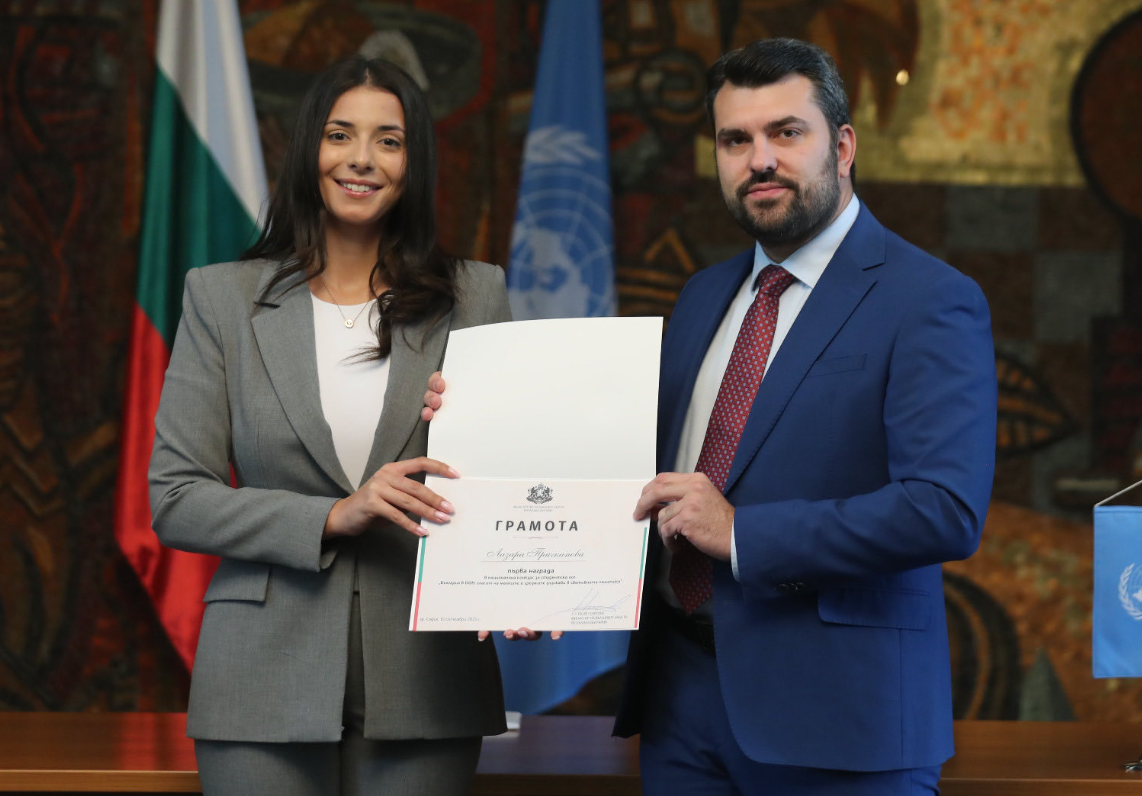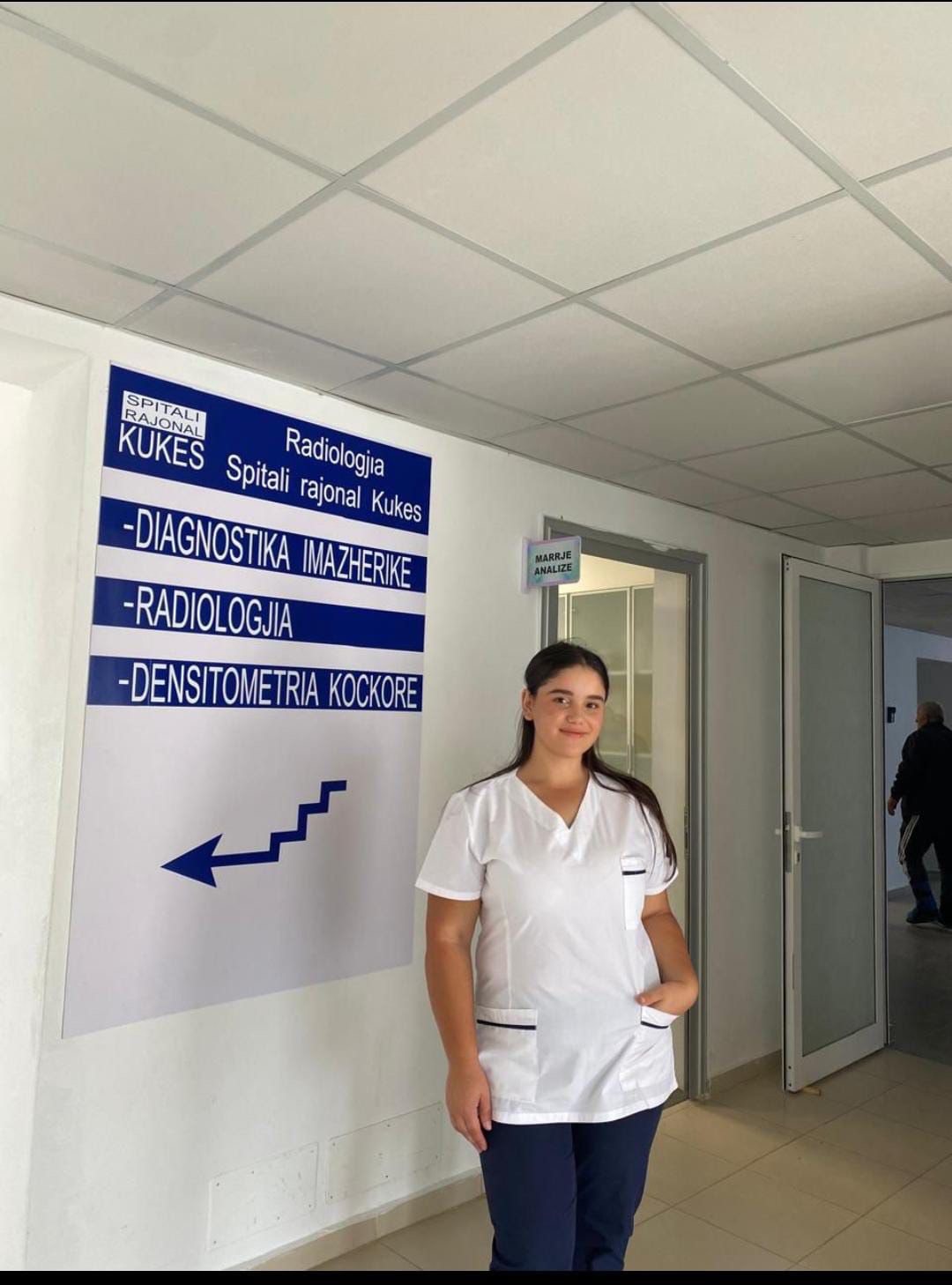My Erasmus Story
Elena Vasileva
One Step Forward in My Journey
The human mind is made to dream and fantasize. My dream of becoming a psychologist one day is what has been giving me the courage to move forward and make decisions that would bring me closer to fulfilling this dream. This is the reason behind choosing to complete an Erasmus+ traineeship. As a third-year Psychology student at South West University “Neofit Rilski”, I thought that this traineeship would really deepen and enrich my practical skills and knowledge of what I have already learned about the art of being a psychologist and prepare me for the real world outside of the university classrooms and books. And I was not wrong.
I chose to do my traineeship in North Macedonia, one of the most charming Balkan countries. The place that was so eager to invite me to work with them and immediately accepted me as part of their team was PUSZ “Open Heart”, an elderly home centre where older adults reside and are taken care of by all kinds of medical staff and health care professionals. The facility is located in the scenic village Popochevo, in the municipality of town Strumica. A lot of time and effort had been put into building this place and making it suitable for the elderly, so that they can enjoy their life to the fullest when they are no longer capable to take care of themselves. For those who are interested, this is the official website of the facility: https://openheartmk.com/, and their Facebook page: https://www.facebook.com/profile.php?id=100028486585268, where you can find a lot of photos of the place and of the elderlies celebrating their birthdays, name days and holidays. The facility has a big garden, filled with trees, flowers and animals such as deer, ducks and wild boars, which are taken care of by the staff. The elderlies love them and enjoy spending time outside in nature, breathing fresh air. The animals are like the mascots of this place. Some of them have lived longer on this property than most patients. It is a wide known fact that animals can have a positive impact on human psychology. The interaction with animals at the facility is great for the elderlies’ mental health as it releases happy hormones and boosts their mood. It also stimulates their social behaviour and makes them more empathetic.
I love a good challenge. And working with older adults is definitely more challenging than it seems. But these couple of months have taught me to look at old age through a different lens. From all the diverse life stories I have heard while talking with the patients, I have realized that all of them are just children trapped in old people’s bodies. All of them wanted to be complimented, paid attention to, involved in social activities and spoiled from time to time. A lot of them still remembered what their parents (usually their mothers) used to do for them and wanted the same treatment. Just like little kids, a lot of the patients suffering from dementia still had hope that their mother would come to take them home. I had big shoes to fill as a trainee and I needed to explain to those patients – in the best manner possible – that this facility is their home now. For some, this was a hard pill to swallow. They were feeling neglected, forgotten and just ‘thrown’ here in this hospital-looking place by their own families. Others were more positive, seeing this place as an opportunity to make new friends and get connected at an old age.
Like in every workplace, there were good days, and there were bad days. There were times when some patients with difficult behaviour were impossible to calm down. That is when the more experienced would step in and I would either assist, or just be a bystander. There were also many times when a diseased patient or a grieving family member needed to be consoled or advised. Sometimes, family members had to be taught how to behave properly in front of and with a beloved one, suffering from a mental illness. In these cases, bereavement counselling and family therapy were used.
Group bibliotherapy was also used as a form of therapeutic approach to improve the mental well-being of the older adults. Stories were told, real and fictional, laughs and cries were shared as the patients were remembering their best childhood memories.
Overall, this traineeship has taught me that asking for help when facing difficulties in life is neither shameful nor something that we need to be afraid of. I was required to cooperate with others and rely on their thoughts and opinions, too, something that I struggle with as a person who prefers to work alone. By the end of the traineeship, I was able to recognize some of the symptoms of the most common mental diseases present in older adults. I also learned how to respond to critics and improve my performance through them, instead of taking them as a personal attack on my abilities and work.
I am grateful that this opportunity has been presented to me. Through this traineeship, I have gained so much experience that would benefit me in the real world. Tools of knowledge were handed to me and I hope that I will get the chance to build my future career as a psychologist with them.





